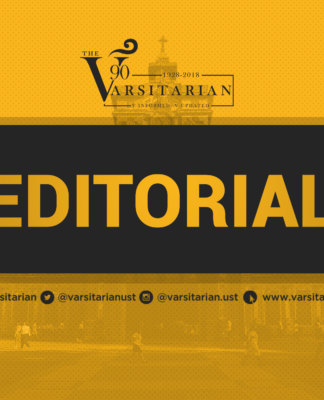
THE VISIT of United States Secretary of State Hillary Clinton to the Philippines was made doubly memorable by the interview forum she gamely took part in and which was hosted by the University of Santo Tomas. “The Manila Forum,” which was produced by the cable news channel ANC and held at the UST Medicine Auditorium, was participated in by college students from all over the University Belt as well as other students across the land via teleconferencing. It afforded Filipino students a chance to see Mrs. Clinton up close and appreciate the intricacies–and evasions–of American diplomacy.
Although Mrs. Clinton’s visit had all the making of a media hype, and perhaps the ANC journalists who led the interview were a tad too slavish in their questions, the forum provided substance to the trip and it was well and good that it was held in an academic setting with no less than the Pontifical University providing that intelligent and historic setting.
Mrs. Clinton articulated certain foreign-policy developments during the forum, the most dramatic of which were:
– US exhortation for a Mindanao peace pact that should however accord with the Philippine Constitution. This is a sea-change in US foreign policy since the previous accord which was ruled unconstitutional by the Supreme Court for attempting to rewrite the Mindanao map and turn over certain territories to the Muslims had the blessing of the US government.
– US support for free trade, which sounds an encouragement of the current balance of trade between the Philippines and the US, which historically has always been highly in favor of the former.
– US support for transparency and anti-corruption drives.
– US engagement with the military dictatorship of Rangoon so as to free Aung San Out ofSuu Kyi and prod it toward democratization.
– The US commitment to contirnue its Visiting Forces Agreement with the Philippines and assist the Philippine military “not for combat” but to play a “supporting role” in the fight against terrorism.
Perhaps because she was in the Pontifical University, Clinton did not mention anything about population control. But in a previous forum, she had voiced support for family planning but stopped short of saying she approves of the Reproductive Health bill in Congress, which Catholic bishops oppose.
In the UST forum, she said broadly that she was “very much committed to human righs, women’s rights issues.” She didn’t elaborate, perhaps respectful of the friars who were seated on the front row decked in their full Dominican regalia.
But let it be made clear that the Church and this paper in particular continue to oppose the RH bill. We are particularly critical of the decision of Clinton’s boss, President Barack Obama, to lift the suspension on federal funding of abortion groups promoting abortion and contraception in developing countries. US funding for population-control groups working internationally smacks of contraceptive imperialism, a form of neocolonial social engineering.
But despite the honest differences of opinion between the Philippines and the US, between the Church and the US, the Hillary Clinton forum afforded Filipinos the chance to intelligently engage with the US and its foremost diplomat. The Philippines has a tendency toward parochialism and insularity, as shown by its Anglo-American fixation and its neglect of Asia, Europe and the rest of the world. The Philippines needs to creatively and intelligently deal with other nations, and a good internationalist makeover is needed. The visit of Clinton provided that nudge and it’s quite a feather on the cap of UST which, by the way, is not only the oldest Asian university but the first truly international university in the region, to have played a role in that renovation.














